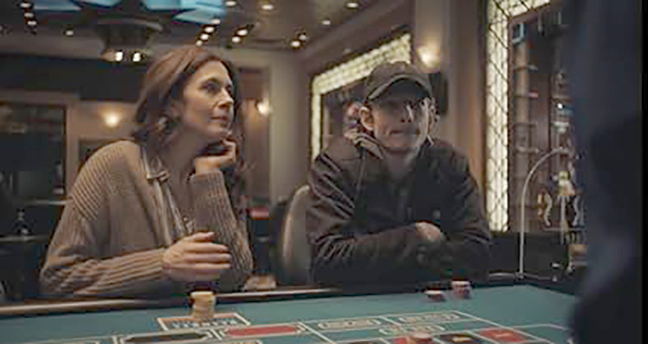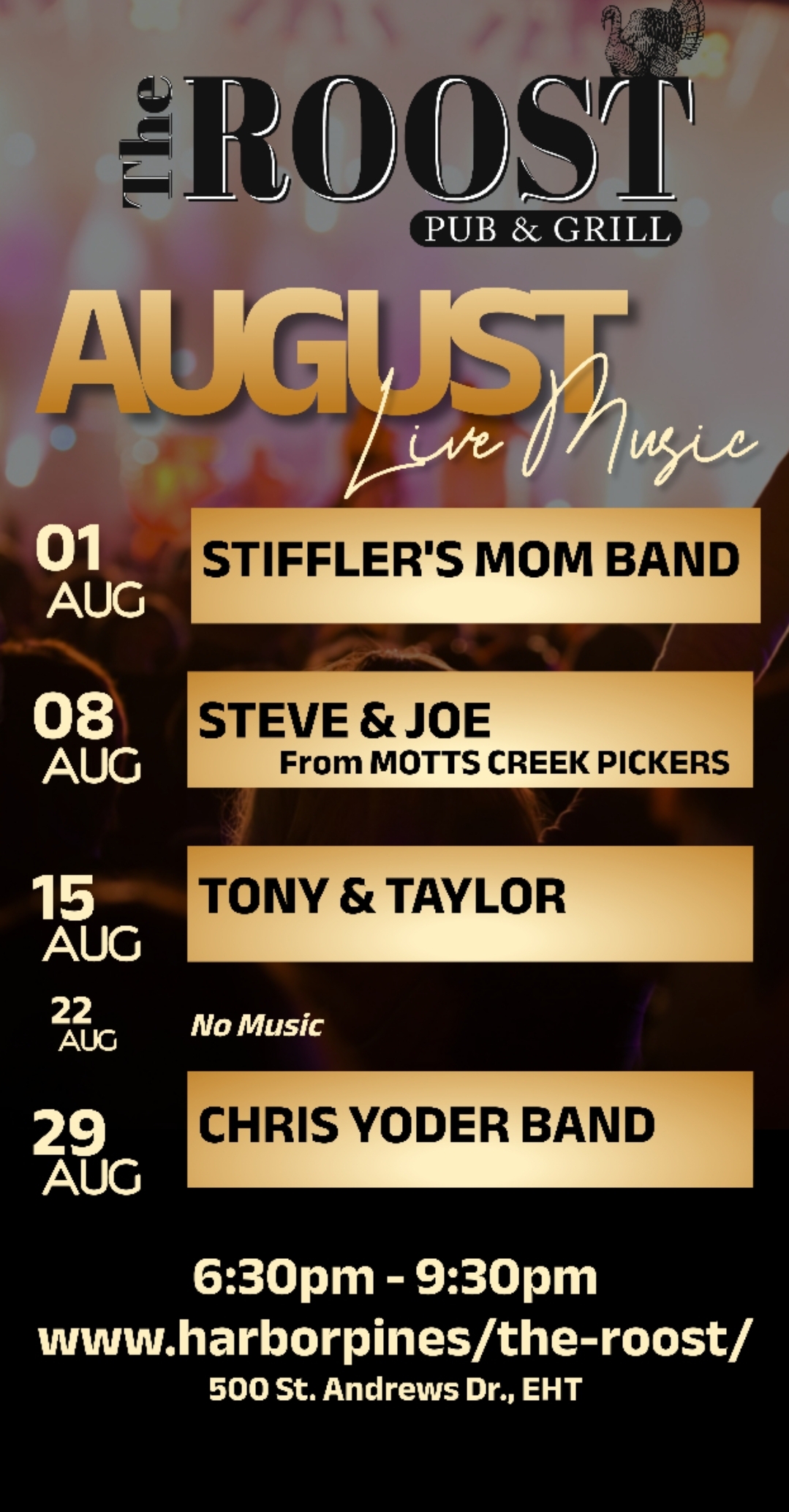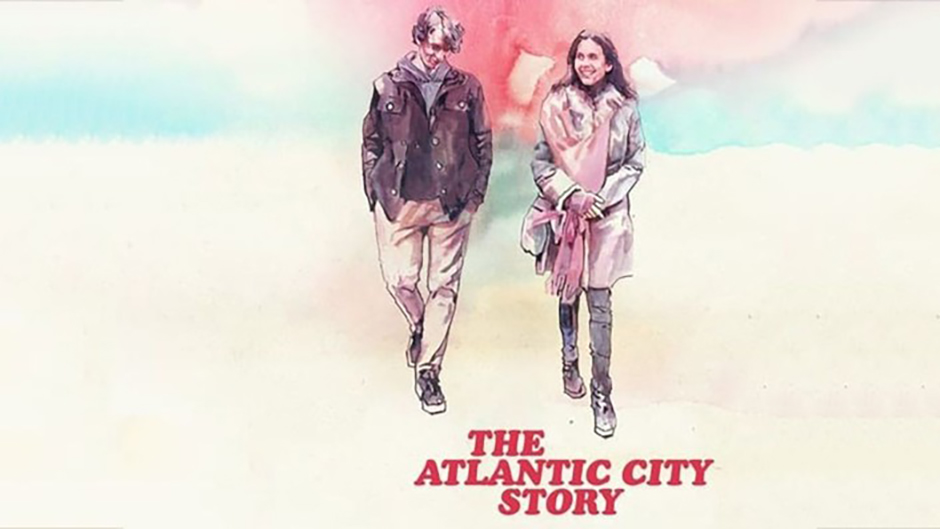“The Atlantic City Story” is one of those films that got lost in the shuffle. It rarely shows up in lists of movies shot in Atlantic City over the years. The reason for that isn’t complicated: If filmgoers didn’t see it at the Denver Film Festival in 2020, or at the Cheltenham International Film Festival in England the following year, then it’s likely that it was not seen at all by anyone until it was made available on Prime Video; released to DVD three years after it was made.
That’s a shame. Although it meanders at times, the movie is charming in an innocent, “isn’t-this-great-for-a-first-time writer/director” type of way.
The leads, Jessica Hecht and Michael Faist, both award-winning, Broadway and television veterans, ooze charm and believability in this quiet project, which is basically a two-person character study. It’s easy for audiences to care about these people. Good cinema leaves audiences with something, and “The Atlantic City Story,” does just that.
The bare-bones plot is simple. Hecht leaves her home in the middle of the night to take a bus to Atlantic City. It’s later revealed that she departed because she caught her husband cheating. Why Atlantic City? Hecht says her parents liked it because they saw Frank Sinatra there.
While wandering around a desolate Boardwalk in the dead of winter, she happens to meet Faist, a man much younger than she, at the roulette table. Perhaps sensing that he is as lonely, depressed and confused as she is, they slowly become friends and very briefly, lovers. It’s clear she wants to save what she perceives as a lost boy.
As the film winds down, we discover that Faist is a compulsive gambler, and Hecht convinces him to get help. In the rather unsatisfying ending, Faist goes home and joins Gambler’s Anonymous, while Hecht goes back to her husband, though it’s ambiguous as to whether they will stay together. And that’s the whole deal.
The film was the brainchild of Henry Butash, who made his debut as a director, writer and producer with “The Atlantic City Story.”
According to his bio, prior to this product, Butash kicked around the film industry as an assistant editor on lesser-known movies like “Barbarian” and “Swallow.”
He has, however, eased into the challenging, triple-threat role of writer/producer/director with a minimum of fuss. While serving as an editorial assistant over the years, it’s clear that Butash has learned his way around the film business.
In an interview with Mae Trumata of the UnrequitedScene.com arts website, Butash talked about what drew him to the film and to Atlantic City.
“In terms of the idea, I grew up in New Jersey and I knew I wanted to make a film there,” he told Trumata. “I’d been living in Texas for a while at the time, and so I was thinking of home and New Jersey. While I didn’t grow up next to Atlantic City — I grew up in the northern part of New Jersey — I’ve been to Atlantic City several times and to the shore quite a bit. When I was thinking of a film I wanted to do in New Jersey, my mind sort of wandered to Atlantic City. I thought about what the city represented and the kind of story one could tell there.

“I knew I wanted to do something about the very brief, intense relationship between an unlikely pair of people,” Butash continued. “There’s a film by Jacques Demy called ‘Bay of Angels’ that details a similar relationship that connected the French Riviera with all the casinos there. I had these different ideas in my head and I started to just go to Atlantic City. I got a hotel room for myself and hung out there. I went to the casinos by myself and just watched people, played a little bit by myself just to be a part of it, and I walked around. I would go to different locations around town and hang out in the casinos and see what kind of people would come and go and spend their time there.
“Over time, the script, which took about a year to write, just kind of grew from that – from those initial ideas and from the environment itself. Because of that, I wanted to make Atlantic City — the place — a real part of the story. I had the thought to set the film in the winter. What Atlantic City is in the winter is completely different from what it is in the summer. In winter, the place really clears out. It becomes haunted in a way by everything that happens there in the summer. You just sense that absence in the winter.”
Mae Trumata also spoke to Jessica Hecht about what attracted her to this little film with a first-time director.
“I was drawn in because of the simplicity of the story,” Hecht explained. “I thought it was simply and honestly told by Henry Butash. The film is about this woman and this new friend that she meets in Atlantic City where she has gone just to get away from her husband with whom she has a very tired relationship. Maybe we’re not even sure what has happened, but she feels exhausted by her marriage and very much alone. So, she takes off for this weekend not even knowing what to do or where to go. She finds herself in Atlantic City and is drawn to this young, tortured — but very beautiful — soul, and they spend a few days together.”
Justin Derry’s striking cinematography, especially of the Steel Pier and the beach at night, the still majestic Resorts Casino Hotel, and of a desolate, dead-of-winter city, help keep eyes glued to the screen for the 1 hour, 38 minute running time.
One senses that actress Jessica Hecht knew she was taking a chance with a little independent film spearheaded by a first-time director/producer/writer.

“But I truly feel this is a unique film,” she said upon its release. “I truly feel that the vision was very precise and very emotionally rooted. I’d be heartbroken if nothing ever happened with it. It was such a labor of love, truly.”
Sadly, nothing much did happen with “The Atlantic City Story.” That can happen with labors of love in the big business of motion pictures.
Bruce Klauber is the author of four books, an award-winning music journalist, concert and record producer and publicist, producer of the Warner Brothers and Hudson Music “Jazz Legends” film series, and performs both as a drummer and vocalist.













